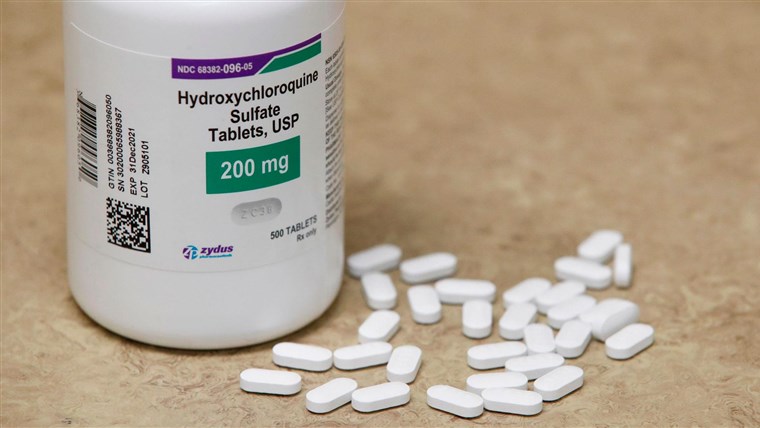FDA pulls emergency use authorization of hydroxychloroquine for COVID-19

The Food and Drug Administration rescinded the emergency use authorization for hydroxychloroquine to treat hospitalized COVID-19 patients on Monday, saying the drug carries too many risks without any apparent benefit.
The authorization was first issued in March, and applied to patients hospitalized with the illness and those in clinical trials. In April, the FDA warned doctors against prescribing the drug to COVID-19 patients outside of those settings. Monday’s action will not affect clinical trials, which are expected to continue.
The announcement covers both hydroxychloroquine and a related compound, chloroquine phosphate.
Full coverage of the coronavirus outbreak
The decades-old drugs are traditionally used to treat malaria and certain autoimmune conditions, including lupus and rheumatoid arthritis, and the FDA’s announcement does not apply to these uses.
Hydroxychloroquine first gained attention as a potential COVID-19 treatment in February, when two small studies suggested it might be useful against the virus. President Donald Trump encouraged its use, even saying in May that he took the medication to prevent COVID-19, despite any evidence it would work. In fact, a study published in early June found hydroxychloroquine was no better than a placebo at preventing coronavirus infection.
Other research has also failed to find any benefit to treating COVID-19 patients with hydroxychloroquine. It does carry known risks.
“In light of ongoing serious cardiac adverse events and other serious side effects, the known and potential benefits” of hydroxychloroquine no longer outweigh those risks, the FDA wrote on its website Monday.




